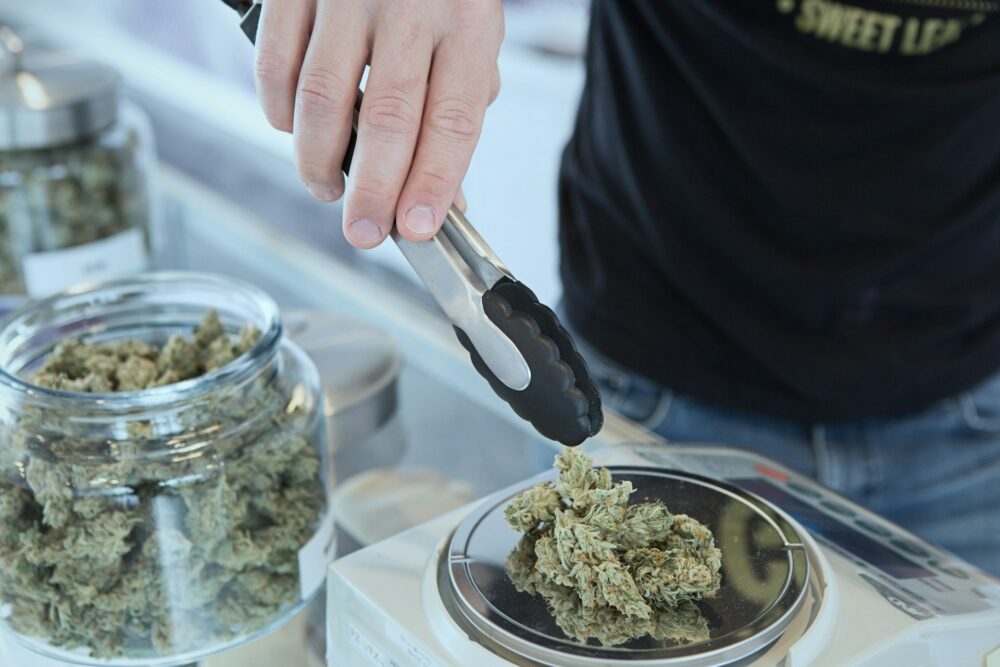Cannabis
Luxembourg Is Looking for Cannabis Dealers amid Ongoing Supply Problems
Due to ongoing medical cannabis shortages, Luxembourg plans to launch a tender for a new supplier later this year. Production bottlenecks caused two out of three types of dried hemp to face supply issues. Legal since 2018, Luxembourg’s medical cannabis market still struggles with logistics. The tender aims to stabilize future supplies.

Due to ongoing shortages in the supply of medical cannabis, Luxembourg will launch a tender for a new supplier later this year. According to the Ministry of Health, two out of three types of dried hemp faced supply problems this year. The supply problems stem from production bottlenecks in this relatively new industry, which has caused similar difficulties before.
Medical cannabis became legal in Luxembourg in July 2018, a step that many, including members of the Pirate Party, saw as a potential start to decriminalizing recreational use of cannabis. However, even though several years have passed since legalization, the market is still struggling with logistics and production problems. Two of the three types of dried herb were unavailable for some time this year, significantly impacting patients who rely on these products.
Causes of cannabis supply problems in Luxembourg
Luxembourg’s Ministry of Health has indicated that the main cause of the shortage is production bottlenecks in the hemp industry, which is still developing. These problems are not new; the country has previously experienced similar difficulties with the production and distribution of medical cannabis. In response to a question from Pirate Party MP Sven Clement, the ministry confirmed to the Luxembourg Times that the current contract for the supply of medical cannabis expires at the end of this year and appropriate adjustments will be necessary.
In response to ongoing supply issues, the Ministry of Health is reviewing whether changes should be made to the way medical cannabis is obtained, processed and distributed. The ministry announced that the contract would be subject to a public tender, but did not indicate whether the current supplier, who has been performing this role since 2021, will be replaced. These analyzes aim to ensure that future supplies are more stable and reliable.
The history of cannabis legalization in Luxembourg
The legalization of medical cannabis in 2018 was part of a broader plan by the DP-LSAP-Greens coalition, which also promised to legalize recreational use of cannabis. However, despite the introduction of regulations allowing the cultivation of a limited number of plants at home and the reduction of penalties for possession of small amounts of cannabis, full legalization has not been achieved. The new CSV-DP government abandoned plans for full legalization, while neighboring Germany introduced significant liberalizations of cannabis law from April this year.
Comparing the situation in Luxembourg with Germany, differences in the approach to cannabis regulation are visible. While Germany introduced more liberal regulations, Luxembourg focused on the medical use of cannabis, putting aside full recreational legalization. It is worth noting that the legalization of medical cannabis was an important step forward, but public expectations for further liberalization remained unfulfilled.
The future of the cannabis market in Luxembourg
The future of the cannabis market in Luxembourg depends on the results of the upcoming tender for a medical cannabis supplier and on possible changes in regulations regarding its distribution. The Ministry of Health emphasizes that appropriate adjustments are necessary to ensure stability of supplies. Introducing new suppliers or improving current procedures can significantly impact the availability of medical products to patients.
Luxembourg faces the challenge of ensuring a stable supply of medical cannabis. A tender for a new supplier is planned to solve current supply problems. The history of cannabis legalization in this country shows that although some progress has been made, much remains to be done. The future of the cannabis market in Luxembourg depends on the effective implementation of planned changes and on political decisions that may influence further cannabis regulation.
__
(Featured image by Budding via Unsplash)
DISCLAIMER: This article was written by a third party contributor and does not reflect the opinion of Born2Invest, its management, staff or its associates. Please review our disclaimer for more information.
This article may include forward-looking statements. These forward-looking statements generally are identified by the words “believe,” “project,” “estimate,” “become,” “plan,” “will,” and similar expressions. These forward-looking statements involve known and unknown risks as well as uncertainties, including those discussed in the following cautionary statements and elsewhere in this article and on this site. Although the Company may believe that its expectations are based on reasonable assumptions, the actual results that the Company may achieve may differ materially from any forward-looking statements, which reflect the opinions of the management of the Company only as of the date hereof. Additionally, please make sure to read these important disclosures.
First published in Fakty Konopne. A third-party contributor translated and adapted the articles from the originals. In case of discrepancy, the originals will prevail.
Although we made reasonable efforts to provide accurate translations, some parts may be incorrect. Born2Invest assumes no responsibility for errors, omissions or ambiguities in the translations provided on this website. Any person or entity relying on translated content does so at their own risk. Born2Invest is not responsible for losses caused by such reliance on the accuracy or reliability of translated information. If you wish to report an error or inaccuracy in the translation, we encourage you to contact us

-

 Biotech1 week ago
Biotech1 week agoByBug Turns Insect Larvae into Low-Cost Biofactories for Animal Health
-

 Business5 days ago
Business5 days agoDow Jones Breaks 50,000 as Bull Market Surges Amid Caution and Volatility
-

 Business2 weeks ago
Business2 weeks agoBattered, but Still Bullish on Gold & Silver
-

 Impact Investing3 days ago
Impact Investing3 days agoEU Backs 90% Emissions Cut by 2040 and Delays ETS2 Rollout

























